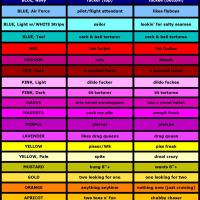
Touch
by Thom Gunn
You are already
asleep. I lower
myself in next to
you, my skin slightly
numb with the restraint
of habits, the patina of
self, the black frost
of outsideness, so that even
unclothed it is
a resilient chilly
hardness, a superficially
malleable, dead
rubbery texture.
You are a mound
of bedclothes, where the cat
in sleep braces
its paws against your
calf through the blankets,
and kneads each paw in turn.
Meanwhile and slowly
I feel a is it
my own warmth surfacing or
the ferment of your whole
body that in darkness beneath
the cover is stealing
bit by bit to break
down that chill.
You turn and
hold me tightly, do
you know who
I am or am I
your mother or
the nearest human being to
hold on to in a
dreamed pogrom.
What I, now loosened,
sink into is an old
big place, it is
there already, for
you are already
there, and the cat
got there before you, yet
it is hard to locate.
What is more, the place is
not found but seeps
from our touch in
continuous creation, dark
enclosing cocoon round
ourselves alone, dark
wide realm where we
walk with everyone.
Valentine’s Day is coming up on Sunday, and in 2012, The Guardian asked poets for their favorite love poem. English poet Blake Morrison chose “Touch” by Thom Gunn. Here is what he said:
Love poems may be addressed to someone in particular but the “you” invariably remains unidentified or is represented only by a body part or item of dress – a sleeping head, a naked foot, an air-blue gown. Thom Gunn’s “Touch” is an extreme example of this. His lover is no more than a mound of bedclothes and embraces him in sleepy oblivion.
do
you know who
I am or am I
your mother or
the nearest human being
This feeling of anonymity is important: it links the two lovers to the rest of us: they’re part of a “realm where we walk with everyone.” But the poem is also intimate and domestic: here are two people (plus their cat) in their own bed – naked, cocooned, “ourselves alone.” Gunn was gay but his lover’s gender isn’t specified, since the theme is the inclusiveness of touch: the way it breaks down the “resilient chilly hardness” we all adopt to function in the outside world. The syllabic form enacts this dissolution or slippage, as the words seep gently from line to line, without the hardness of end stops. The word “love” isn’t used; the words “dark” and “darkness” recur three times. But the poem exudes warmth, familiarity and how it feels to lie naked with a fellow creature, whoever he or she may be.













Thank you for commenting. I always want to know what you have to say. However, I have a few rules: 1. Always be kind and considerate to others. 2. Do not degrade other people's way of thinking. 3. I have the right to refuse or remove any comment I deem inappropriate. 4. If you comment on a post that was published over 14 days ago, it will not post immediately. Those comments are set for moderation. If it doesn't break the above rules, it will post.